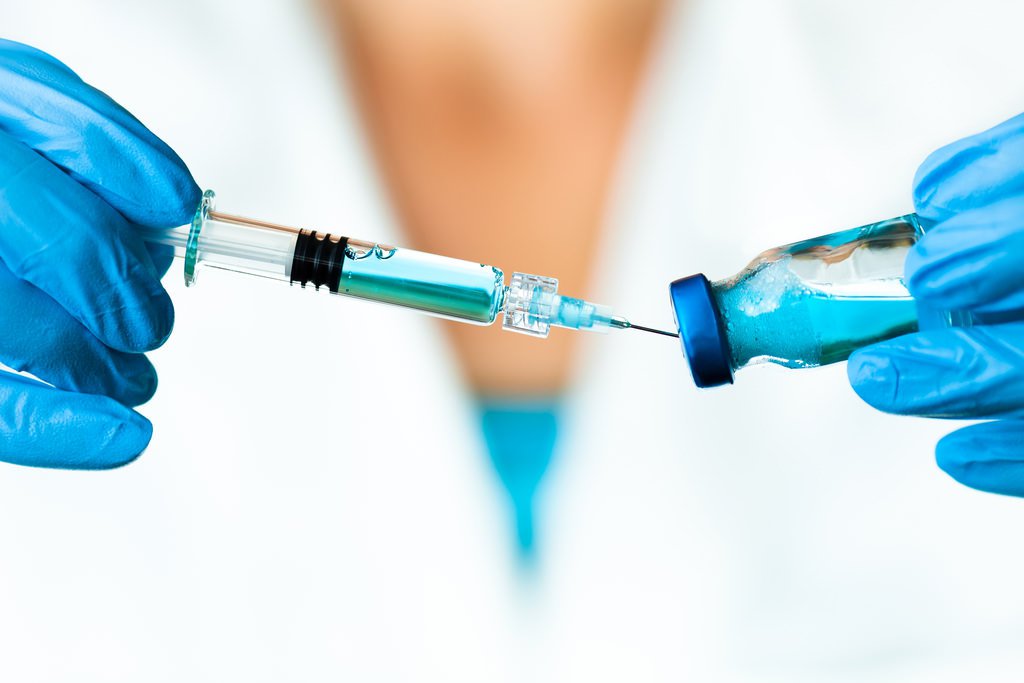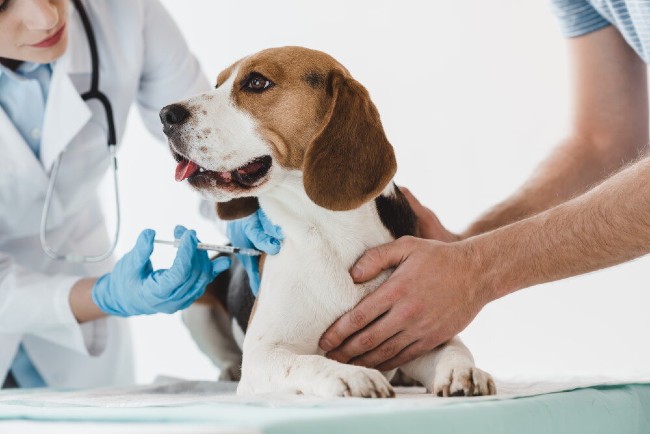The Ultimate Guide to Dog Vaccinations: Protecting Your Canine Companion
As a responsible and caring dog owner, it is crucial to prioritize your furry friend’s health and well-being. One of the most essential aspects of canine healthcare is vaccinations. Vaccinations protect your dog from potentially life-threatening infectious diseases, prevent the spread of diseases to humans and other pets, and ensure a healthy and happy life for your beloved companion.
In this comprehensive guide, we will provide you with all the information you need to know about dog vaccinations: the types of vaccinations available, their costs, where to buy them, and the recommended vaccination schedule for puppies and adult dogs. So let’s dive in and learn how to best protect your canine friend!
Table of Contents
- Introduction to Dog Vaccinations
- Understanding the Cost of Dog Vaccinations
- Core Vaccines: Essential Protection for Dogs
- The 5-in-1 Vaccine: Comprehensive Protection
- Optional Dog Vaccines: Tailored Protection
- Puppy Vaccination Schedule: Building Immunity
- Adult Dog Vaccination Schedule: Boosting Immunity
- Are Dog Vaccinations Required?
- Tips to Lower the Cost of Dog Vaccinations
- Pet Insurance for Dogs: Comprehensive Coverage
- Frequently Asked Questions on Cost of Dog Vaccinations
- Conclusion
Introduction to Dog Vaccinations
Vaccinations are an essential aspect of preventive healthcare for dogs. They protect your furry friend from a range of infectious diseases that can be potentially life-threatening. Vaccinations work by stimulating your dog’s immune system to produce antibodies that fight off specific diseases. When exposed to the actual infectious agent, your dog’s immune system recognizes it and rapidly mounts a defense, preventing the disease from taking hold or reducing its severity.
Not only do vaccinations safeguard your dog’s health, but they also play a crucial role in preventing the spread of diseases to other animals and humans. By vaccinating your dog, you contribute to the overall community health and help create a safer environment for everyone.
Understanding the Cost of Dog Vaccinations

While dog vaccinations are a necessary investment in your pet’s health, it’s natural to have concerns about the associated costs. The cost of dog vaccinations can vary depending on several factors, including the type of vaccine, veterinary fees in your area, and the number of vaccines your dog requires. Let’s explore these factors in more detail.
Factors Affecting Dog Vaccination Costs
Several factors can influence the cost of dog vaccinations. These factors include:
- Vaccine Type: Different vaccines have varying costs based on their composition and effectiveness. Core vaccines, which are considered essential for all dogs, are generally more affordable than optional vaccines.
- Veterinary Fees: The overall cost of dog vaccinations can vary based on the fees charged by veterinary clinics in your area. Urban areas or regions with a higher cost of living tend to have higher veterinary fees.
- Number of Vaccines: The total cost of dog vaccinations will depend on how many vaccines your dog needs. Puppies typically require a series of vaccinations, while adult dogs may need regular boosters to maintain their immunity.
Average Cost of Dog Vaccinations
On average, dog vaccinations can range from $20 to $50 per vaccine. The exact cost will depend on the factors mentioned above, as well as the specific geographical location. It is important to note that the cost of dog vaccinations is just one aspect of responsible pet ownership, and the long-term benefits far outweigh the initial investment.
Now that we have a better understanding of the cost factors, let’s explore the different types of vaccinations available for dogs.
Core Vaccines: Essential Protection for Dogs
Core vaccines are considered necessary for all dogs because they protect against highly contagious and potentially fatal diseases. These vaccines not only safeguard your dog’s health but also contribute to the overall community health by preventing outbreaks. Let’s take a closer look at the core vaccines for dogs.
Canine Parvovirus Vaccine
Canine Parvovirus (CPV) is a highly contagious viral disease that primarily affects puppies and unvaccinated dogs. It attacks the gastrointestinal tract and immune system, leading to severe dehydration, systemic infection, and shock. The mortality rate for untreated cases can be as high as 90%, making the vaccine a crucial preventive measure.
The canine parvovirus vaccine provides effective protection against this deadly disease. Puppies typically receive a series of vaccinations starting around 6 to 8 weeks of age, with booster shots given every two to four weeks until they reach 16 weeks. Adult dogs require regular boosters to maintain their immunity.
Canine Distemper Vaccine
Canine Distemper is a highly contagious viral disease that affects the respiratory, gastrointestinal, and nervous systems of dogs. It is often fatal and can lead to permanent neurologic damage in survivors. The virus can also be carried and transmitted by wildlife, serving as a reservoir of infection.
The canine distemper vaccine provides essential protection against this deadly disease. Similar to the parvovirus vaccine, puppies receive a series of vaccinations starting around 6 to 8 weeks of age, with booster shots given every two to four weeks until they reach 16 weeks. Adult dogs require regular boosters to maintain their immunity.
Canine Hepatitis Vaccine
Canine Infectious Hepatitis (CIH), caused by an adenovirus, primarily affects the liver cells of dogs. It can lead to secondary clotting problems or kidney disorders. Although most infected young dogs recover, around 10% to 30% may die due to the disease. Vaccination provides effective immunity against this potentially fatal virus.
The canine hepatitis vaccine is an essential component of core vaccinations. It is typically included in the combination vaccine along with other core vaccines. Puppies receive the initial series of vaccinations, followed by regular boosters in adulthood.
Rabies Vaccine
Rabies is a deadly viral disease that affects the brain and nervous system of mammals, including dogs and humans. It is transmitted through bite wounds, primarily from infected wildlife such as raccoons and bats. Rabies is nearly 100% fatal, making the vaccine a legal requirement in most states and counties.
The rabies vaccine is extremely effective in preventing the disease and is often mandated by law. Puppies typically receive their first rabies vaccination around 12 to 16 weeks of age, followed by booster shots as recommended by local regulations. Regular booster vaccinations are necessary to maintain your dog’s immunity.
Now that we have covered the core vaccines, let’s explore the convenient 5-in-1 vaccine that combines multiple core vaccines into a single injection.
The 5-in-1 Vaccine: Comprehensive Protection

The 5-in-1 vaccine, also known as the 4-in-1 vaccine, offers comprehensive protection against multiple diseases in a single injection. This combination vaccine typically includes protection against parvovirus, distemper, adenovirus, and canine parainfluenza. Some 5-in-1 vaccines also include coverage for leptospirosis, a bacterial disease.
The 5-in-1 vaccine is often referred to as the DAPP, DHPP, DA2PP, or DAPP+L vaccination. It provides a convenient and efficient way to administer core vaccines, minimizing the number of injections required and reducing stress for your dog. Consult with your veterinarian to determine the most appropriate vaccination protocol for your furry friend.
Now that we have covered the core vaccines, let’s explore the optional vaccines that can provide tailored protection based on your dog’s specific needs and lifestyle.
Optional Dog Vaccines: Tailored Protection
Optional dog vaccines, also known as lifestyle or non-core vaccines, are administered based on individual dogs’ risk factors for specific diseases. The decision to vaccinate against these diseases is typically made in consultation with your veterinarian, taking into consideration your dog’s lifestyle, geographical location, and potential exposure risks.
Let’s take a closer look at some of the optional vaccines that can provide additional protection for your canine companion.
Bordetella Vaccine
The Bordetella vaccine protects against Bordetella bronchiseptica, a bacterium commonly associated with kennel cough. Kennel cough is a highly contagious respiratory disease that can spread rapidly in environments where dogs congregate, such as dog parks, daycare facilities, boarding kennels, and training classes.
While the Bordetella vaccine does not completely prevent infection, it can lessen the severity of the disease and help dogs recover faster. If your dog is regularly exposed to these environments, vaccination is highly recommended to reduce the risk of kennel cough.
Canine Influenza Vaccine
Canine influenza is an airborne respiratory infection that affects dogs, particularly those in close proximity to other dogs, such as in kennels, shelters, or dog shows. Dogs at risk for Bordetella infection are also at a higher risk for canine influenza.
The canine influenza vaccine does not completely prevent infection but can reduce the severity of the disease and lower the likelihood of complications, including pneumonia. If your dog frequently interacts with other dogs or is exposed to high-risk environments, consult with your veterinarian regarding the need for canine influenza vaccination.
Leptospirosis Vaccine
Leptospirosis is a bacterial disease that dogs can contract from water sources contaminated with the urine of infected animals. It can cause severe liver and kidney damage and can be fatal for some dogs. Leptospirosis is more prevalent in certain geographic areas and is associated with outdoor activities and exposure to wildlife.
Vaccination provides effective immunity against leptospirosis and is recommended for dogs at risk. If you live in an area with a higher incidence of leptospirosis or engage in outdoor activities with your dog, consult with your veterinarian to determine if vaccination is necessary.
Lyme Disease Vaccine
Ticks transmit Lyme disease, a bacterial infection caused by the spirochete Borrelia burgdorferi. This disease is prevalent in wooded areas and regions where ticks are common. If you live in or frequently visit such areas, your dog may be at an increased risk of contracting Lyme disease.
The Lyme disease vaccine provides protection against this tick-borne illness. If your dog spends time outdoors, particularly engaging in activities such as hiking, camping, or exploring wooded areas, consult with your veterinarian to discuss the need for Lyme disease vaccination.
Now that we have explored the core and optional vaccines, let’s discuss the recommended vaccination schedules for puppies and adult dogs.
Puppy Vaccination Schedule: Building Immunity

Puppies receive initial immunity from their mother’s milk, which provides temporary protection against infectious diseases. However, this immunity gradually wanes after several weeks, leaving them susceptible to diseases. To bridge this gap, puppies require a series of vaccinations to develop their own immunity.
The puppy vaccination schedule typically begins around 6 to 8 weeks of age, with doses administered every two to four weeks until the puppy reaches 16 weeks. The final set of vaccinations ensures that the puppy has developed sufficient immunity against common diseases.
The exact vaccination schedule may vary based on the specific vaccines administered and your veterinarian’s recommendations. It is crucial to follow the recommended schedule to ensure optimal protection for your puppy.
Adult Dog Vaccination Schedule: Boosting Immunity
After completing the initial puppy vaccination series, adult dogs require regular booster shots to maintain their immunity. The first vaccine in the series stimulates the immune system to produce antibodies against the targeted disease. Booster shots help reinforce this immune response, ensuring continued protection.
Most vaccines are boosted one year after the completion of the puppy vaccination series. After this initial booster, some vaccines may be administered every three years, while others may require annual boosters. The specific vaccination schedule depends on the manufacturer’s labeling and your veterinarian’s recommendations.
It is important to note that regular veterinary check-ups are essential for adult dogs, as they allow for the assessment of your dog’s overall health, including their vaccination status. Your veterinarian may adjust the vaccination schedule based on your dog’s individual needs and risk factors.
Are Dog Vaccinations Required?
Rabies vaccination is the only dog vaccination required by law. Rabies is a public health concern, and vaccination regulations are enforced by individual states and counties. Failure to comply with rabies vaccination requirements can result in legal consequences.
While no other dog vaccinations are legally required, it is highly recommended to follow the recommended vaccination protocols to ensure your dog’s health and the safety of others in your community. Core vaccines, including the 5-in-1 combination vaccine, provide essential protection against potentially deadly diseases.
Consult with your veterinarian to understand the specific vaccination requirements and recommendations in your area. They will guide you through the necessary vaccinations to keep your dog healthy and compliant with local regulations.
Tips to Lower the Cost of Dog Vaccinations
As a responsible dog owner, you may be looking for ways to lower the cost of dog vaccinations without compromising your pet’s health. Here are some tips to help you manage the expenses:
- Visit Low-Cost Vaccine Clinics: Many communities offer low-cost vaccine clinics or mobile clinics that provide vaccinations at reduced prices. These clinics often partner with local animal welfare organizations or government agencies to make vaccinations more accessible.
- Re-evaluate Vaccination Risk: Discuss your dog’s lifestyle and potential exposure risks with your veterinarian during each annual wellness visit. Based on their assessment, you can determine if any adjustments can be made to the vaccination protocol, reducing the number of vaccines your dog requires.
- Adopt an Every-Three-Year Vaccine Protocol: Some vaccines, such as the rabies vaccine, may have a three-year duration of immunity. If deemed appropriate by your veterinarian, transitioning to a three-year vaccination protocol can help reduce long-term costs.
- Inquire About Vaccination Packages: Veterinary clinics may offer vaccination packages that bundle multiple vaccines together, reducing the overall cost. Inquire with your veterinarian about any cost-saving options available.
Remember, while reducing vaccination costs is important, it is crucial not to compromise your dog’s health and well-being. Vaccinations play a vital role in preventing potentially fatal diseases and ensuring a healthy life for your furry companion.
Pet Insurance for Dogs: Comprehensive Coverage

Pet health insurance provides financial coverage for unexpected veterinary expenses, including accidents, illnesses, and injuries. While most pet insurance policies do not cover routine wellness care, including vaccinations, some policies offer optional wellness coverage that includes reimbursement for vaccinations.
By adding wellness coverage to your pet insurance policy, you can receive reimbursement for a portion of the vaccination costs. This coverage may also extend to other preventive care services, such as microchipping, heartworm tests, deworming, and spaying or neutering.
When considering pet insurance, it is essential to thoroughly research different policies, compare coverage options and costs, and choose a plan that best suits your dog’s needs and your budget. Pet insurance can provide peace of mind and financial protection in the event of unexpected veterinary expenses.
Conclusion
Dog vaccinations are a crucial aspect of responsible pet ownership. They protect your furry friend from potentially life-threatening diseases, prevent the spread of diseases to humans and other animals, and contribute to the overall community health.

